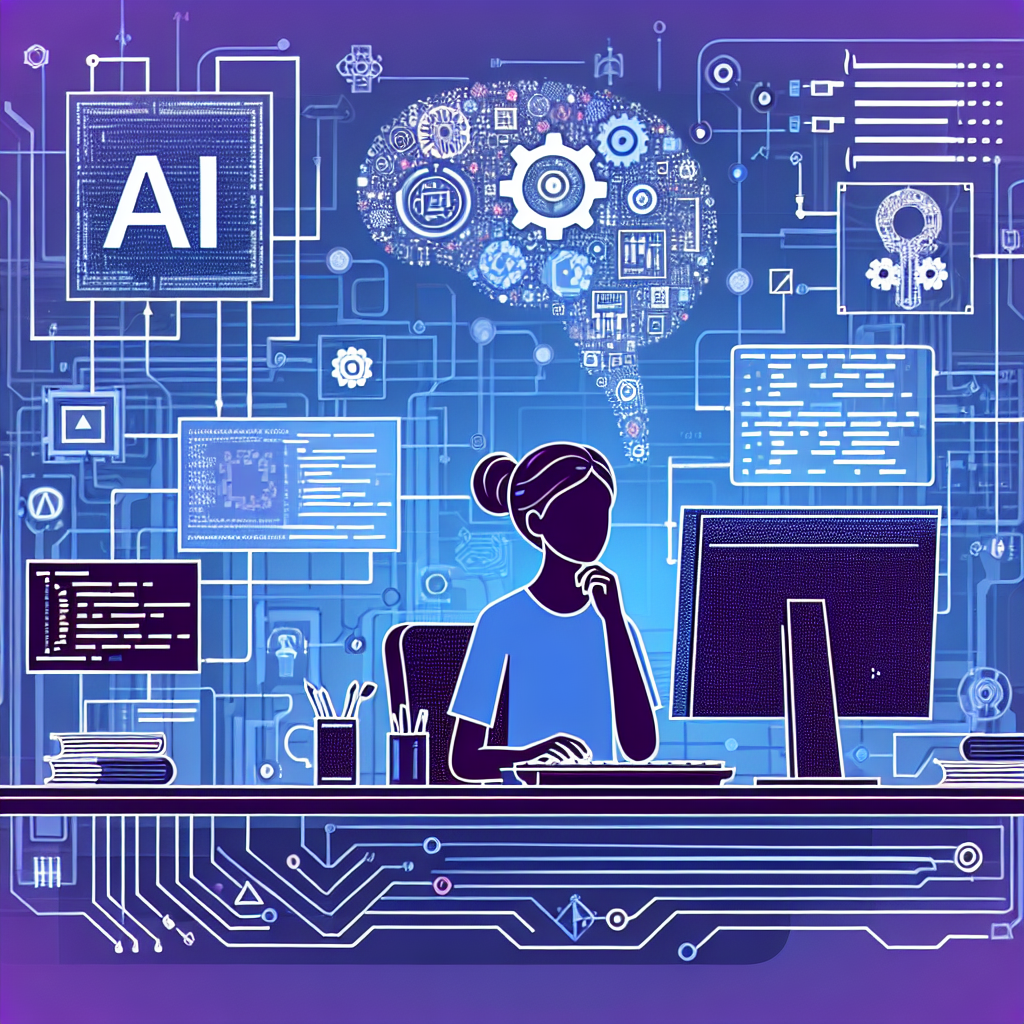Artificial Intelligence (AI) has emerged as one of the most transformative technologies of the 21st century. From self-driving cars to personalized recommendations on streaming services, AI is revolutionizing industries and changing the way we interact with technology. However, developing AI software comes with its own set of challenges that developers must navigate in order to create successful and effective AI systems.
One of the biggest challenges in developing AI software is the complexity of the algorithms and models that power these systems. AI software relies on sophisticated mathematical and statistical techniques to analyze and interpret data, make predictions, and learn from experience. Developing these algorithms and models requires a deep understanding of machine learning, neural networks, and other AI techniques, as well as expertise in programming and data science.
Another challenge in developing AI software is the availability and quality of data. AI systems learn from data, so having access to large, diverse, and high-quality datasets is essential for training and testing AI models. However, collecting and curating data can be a time-consuming and expensive process, and finding the right data to train AI models can be a challenge in itself. In addition, ensuring that the data is clean, unbiased, and representative of the real-world is crucial for the accuracy and reliability of AI systems.
Ethical and societal considerations are also important challenges in developing AI software. AI systems can have far-reaching impacts on society, from job displacement to privacy concerns to algorithmic bias. Developers must consider the ethical implications of their AI systems and ensure that they are designed and deployed in a responsible and transparent manner. This includes addressing issues such as data privacy, algorithmic fairness, and accountability for the decisions made by AI systems.
Technical challenges also arise in developing AI software, such as scalability, interoperability, and performance optimization. AI systems often require large amounts of computational resources to train and run efficiently, which can be costly and difficult to manage. Ensuring that AI software can scale to handle increasing amounts of data and users, integrate with existing systems and technologies, and perform effectively in real-time environments are all important technical challenges that developers must address.
In addition to these challenges, regulatory and legal considerations can also pose obstacles to the development of AI software. As AI technologies become more prevalent and powerful, governments and regulatory bodies are increasingly focusing on issues such as data protection, algorithmic accountability, and the ethical use of AI. Developers must navigate a complex landscape of regulations and standards to ensure that their AI systems comply with legal requirements and ethical guidelines.
Despite these challenges, the potential benefits of AI software are immense. AI has the power to transform industries, improve efficiency and productivity, and enhance the way we live and work. By addressing the technical, ethical, and regulatory challenges of developing AI software, developers can unlock the full potential of this groundbreaking technology and create innovative solutions that have a positive impact on society.
FAQs:
Q: What is artificial intelligence (AI)?
A: Artificial intelligence (AI) is a branch of computer science that aims to create intelligent machines that can perform tasks that typically require human intelligence, such as visual perception, speech recognition, decision-making, and language translation.
Q: What are some examples of AI applications?
A: Some examples of AI applications include virtual assistants like Siri and Alexa, self-driving cars, recommendation systems on platforms like Netflix and Amazon, and fraud detection algorithms used by banks and credit card companies.
Q: What are the main challenges in developing AI software?
A: Some of the main challenges in developing AI software include the complexity of algorithms and models, the availability and quality of data, ethical and societal considerations, technical challenges such as scalability and performance optimization, and regulatory and legal considerations.
Q: How can developers address the challenges of developing AI software?
A: Developers can address the challenges of developing AI software by acquiring expertise in machine learning and data science, ensuring access to high-quality and diverse datasets, considering the ethical implications of their AI systems, optimizing performance and scalability, and complying with regulatory and legal requirements.
Q: What are the benefits of AI software?
A: The benefits of AI software include improved efficiency and productivity, enhanced decision-making and problem-solving capabilities, personalized and targeted services, and the potential to transform industries and improve the quality of life for individuals and communities.

